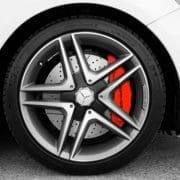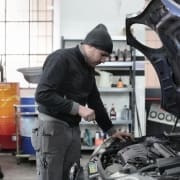5 Tips For Extending Your Car’s Life
Everyone has that one friend whose 1998 Honda Civic still runs like it’s brand new. But how do they do it? And how can you? Follow these 5 tips for extending your car’s life and you will spend less on repairs, and get extra mileage from your car!
1. Consistent oil changes
Infrequent oil changes are the number one cause of engine wear and tear, caused by friction within the engine. Most vehicles should get an oil change every 5,000 to 8,000 km, but every car is different. Check your owner’s manual to find your car’s schedule or shoot us a message in our chat and we’ll help you out.
2. Don’t ignore small problems
All cars have signs of aging – your steering might feel off, or you might hear a noise when you turn on the AC. But these small issues can turn into expensive major repairs if gone unchecked. So, avoid this with regular inspections of your car and sort out all the minor issues.
3. Monitor your air filter
Your car’s mileage can be drastically reduced if your air filter is not replaced when necessary. Although many mechanics “up-sell” air filters, they can be important to replace when at the end of their lifespan, which is typically 30,000 to 50,000km. Air filters may last longer if you don’t drive on unpaved roads.
4. Keep your fluids topped up
Besides oil, your car uses transmission fluid, brake fluid, power steering fluid, and coolant. Your car will perform worse, and can even be damaged, without proper fluids. Our mechanics can change each of these fluids for you, or even top them off while doing another repair.
5. Check your tyre pressure
Low tyre pressure can adversely impact your fuel consumption and vehicle handling. Recommended tire pressure can be found on the label inside your driver’s side door. Your tire pressure should be within 5 PSI of this measurement.
We can guarantee that by following these 5 tips for extending your car’s life, your vehicle will last longer and you will get more mileage. So take action now and tick off each item. If you need a minor repair, oil change or a service book a trusted mechanic online now with Michanic.
We understand that your car plays an important part of your daily life, transporting you and your loved ones. Michanic is dedicated to providing the most convenient services for our customers, so if you have any other questions or concerns regarding your car, feel free to talk to our customer service team through email at [email protected], or by phone on 087 803 9000.


